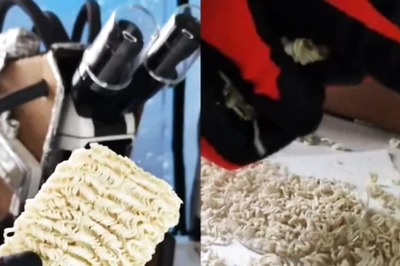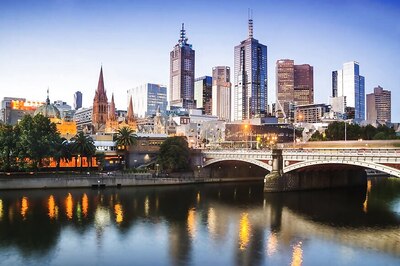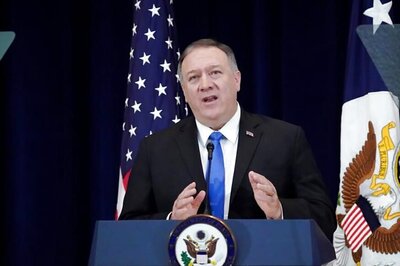
views
Khardah (West Bengal): From air-conditioned boardrooms and state dinners to the heat and dust of rural campaigning. It is an unfamiliar territory but Amit Mitra, secretary general of industry lobby FICCI and now Trinamool Congress candidate in the West Bengal elections, says he's just returning to his roots.
Mitra, a high-profile industry lobbyist who has been sought after for this views by successive governments and has friends in high places around the world, has taken on an entirely new role. From natty business suits to the white kurta and dhoti, from advising the government on the nuances of investment policies to canvassing for votes, the noted economist who has studied in the US has switched worlds quite effortlessly.
The man widely tipped to be finance or industry minister if Mamata Banerjee comes to power says its all par for the course as he rebuts the ruling Left's allegation that he is an outsider in this suburban constituency where he takes on the Communist Party of India-Marxist's (CPM) nominee Asim Dasgupta, state finance minister for a quarter century.
"My father Haridas Mitra was an MLA. He had contested four elections and he had never been defeated. There is a railway station in the state - Belanagar - that is named after my mother. My maternal grandfather Suresh Chandra Bose was the elder brother of Netaji Subhas Chandra Bose. I have deep roots in Bengal... I have only returned to my roots," Mitra, who has been handpicked by Trinamool Congress chief Mamata Banerjee, told IANS.
He is trying hard to adjust to this new challenge of canvassing for votes in the West Bengal assembly polls that began on Monday and end on May 10. "I am covering the length and breadth of the constituency. There is no infrastructure in the area. More than 30 years have passed, but the CPI-M has done nothing for the area. They even could not bring water. As you can see, there is no cleaning of drains..." Mitra said, pointing to an open drain.
"What has the CPM done to alleviate unemployment in 34 years? All the factories in the constituency are closed. I want to ask Asim Dasgupta whether closing down the factories is his job in the government," Mitra said while campaigning in Sodepur town. He alleged that Dasgupta had not paid any attention to his constituency or the state.
"The state is totally bankrupt. It has a burden of Rs 2 lakh crore. People here are very anxious and very angry. They are looking for a change," said Mitra, a PhD from Duke University in the US. He is being touted as a future finance minister if Trinamool forms the next government.
Mitra has taken leave of absence from the Federation of Indian Chambers of Commerce and Industry to join the poll fray in the constituency, which has elected Dasgupta in the last five elections since 1987.
The densely populated constituency of 169,000 voters is part of the North 24 Parganas district industrial belt dotted with jute mills and small manufacturing units. A large part of the electors comprise migrants from Bihar and Orissa, whose forefathers came to work here about a century ago. It also has a substantial Muslim population.
Mitra had been assisting Banerjee in drawing up business plans for the railways since she took over the portfolio in mid-2009. "Industrialists have faith in Mamata Banerjee that she will do things transparently. What has she offered to you? First of all it is integrity. No one has raised a finger against her. And second is transparency," he said.
"For the first time Mamata Banerjee brought private-public partnership in railways. I was chairman of the Expert Committee. I asked big companies why they are participating in the tender process. They said no railway minister had ever worked so transparently," he said.
Mitra is convinced that once the Marxist rule comes to an end, West Bengal will see industrialists returning to the state. "The CPM has forced capital to leave Bengal. They have forced the factories to be closed. Mid-size industries have left the state and gone to Ahmedabad, Mumbai and Chennai because the condition prevailing here is worse," he said.
"When the Marxist rule ends, they (industrialists) will have the confidence, then small-scale, middle and big industries will come back," he added.
The constituency will vote April 27 in the third phase of the six-phase elections that began on April 18.




















Comments
0 comment